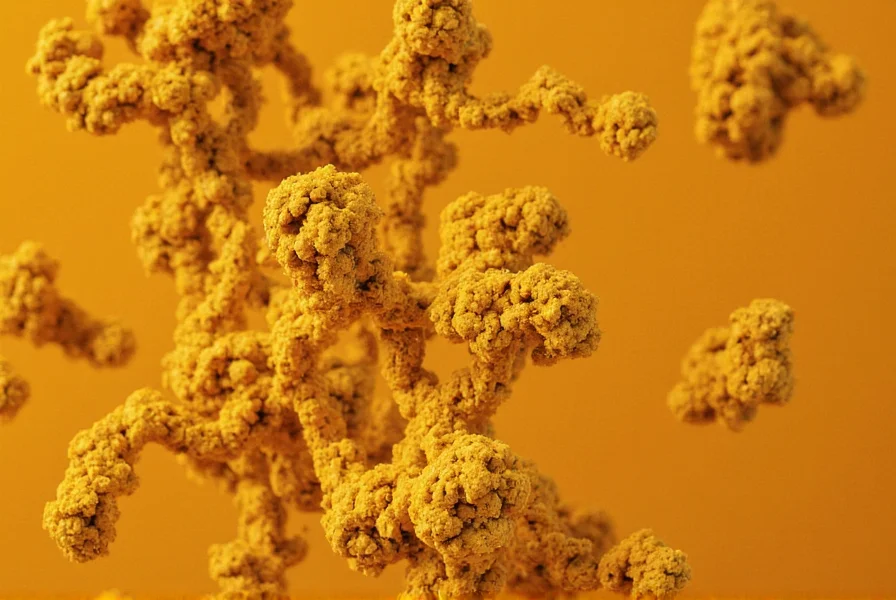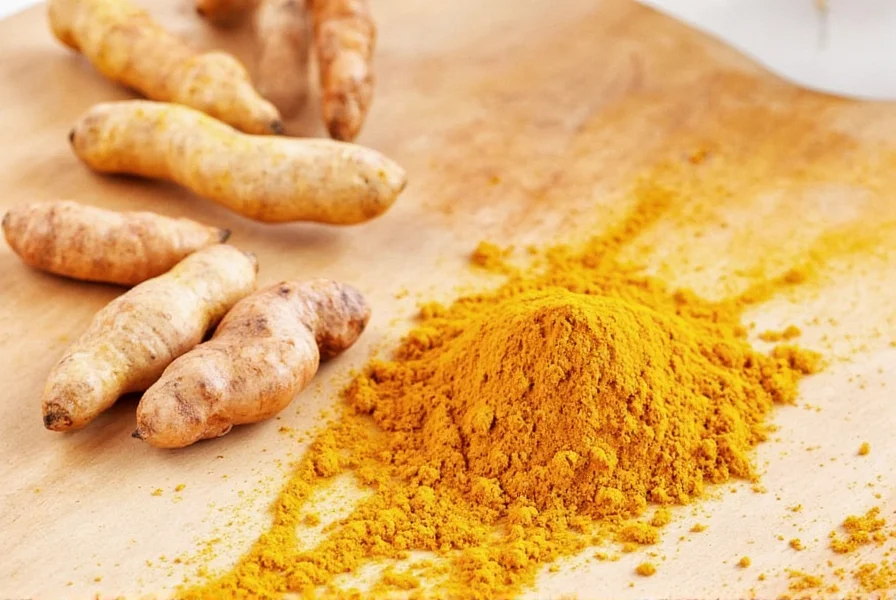For decades, traditional medicine systems have utilized turmeric for inflammatory conditions. Modern research now provides evidence supporting these historical uses, particularly regarding does turmeric reduce inflammation in specific contexts. This article examines the scientific consensus on turmeric's anti-inflammatory effects, separating established facts from common misconceptions.
The Active Compound: Curcumin and Inflammation
Curcumin constitutes approximately 2-8% of turmeric root by weight and serves as the primary bioactive component responsible for its yellow color and therapeutic properties. When evaluating scientific evidence for turmeric anti-inflammatory effects, researchers focus almost exclusively on curcumin due to its potent biological activity.
Multiple studies published in journals like Journal of Medicinal Food and Advances in Experimental Medicine and Biology demonstrate that curcumin:
- Inhibits NF-kB, a protein complex controlling DNA transcription of inflammatory genes
- Reduces levels of pro-inflammatory cytokines including TNF-α and IL-6
- Decreases activity of enzymes like COX-2 and LOX involved in inflammation pathways
- Modulates immune cell activity to reduce chronic inflammation

Clinical Evidence: What Research Shows
A comprehensive 2022 meta-analysis in Nutrients reviewed 37 randomized controlled trials involving over 3,000 participants. The analysis concluded that curcumin supplementation significantly reduced inflammatory markers compared to placebo, with effects comparable to some non-steroidal anti-inflammatory drugs (NSAIDs) in specific conditions.
| Condition Studied | Curcumin Effect Size | Compared to Standard Treatment |
|---|---|---|
| Osteoarthritis | Moderate reduction in pain scores | Similar to 1,200mg ibuprofen daily |
| Rheumatoid arthritis | Significant improvement in DAS-28 scores | Better than placebo, comparable to methotrexate in some measures |
| Metabolic syndrome | Reduced CRP and IL-6 markers | Complementary to standard care |
Bioavailability: The Critical Limitation
Despite promising research, how does curcumin reduce inflammation effectively faces a major hurdle: poor bioavailability. Curcumin has extremely low absorption rates when consumed alone. Standard turmeric powder contains insufficient curcumin, and what is present gets rapidly metabolized and eliminated.
Research shows three approaches improve curcumin bioavailability:
- Piperine combination: Black pepper extract (piperine) increases absorption by up to 2,000%
- Liposomal or nanoparticle formulations: Encapsulation technology improves delivery
- Phospholipid complexes: Meriva® and similar formulations enhance absorption 29-fold
Practical Applications and Dosage
For those considering turmeric supplement for inflammation, research suggests:
- Effective doses range from 500-2,000mg of standardized curcumin daily
- Look for products specifying curcumin content (typically 95% extract)
- Choose formulations with bioavailability enhancers like piperine
- Culinary turmeric alone provides minimal therapeutic benefit due to low curcumin concentration
The best way to take turmeric for inflammation involves combining it with healthy fats (curcumin is fat-soluble) and black pepper. A simple golden milk recipe with 1 tsp turmeric, 1/2 tsp black pepper, and coconut milk provides some benefit, though therapeutic effects typically require supplementation.
Safety Considerations
Curcumin demonstrates excellent safety profiles in clinical trials, with most studies reporting minimal side effects even at high doses. However, important considerations include:
- Potential interactions with blood thinners (warfarin, aspirin)
- May enhance effects of diabetes medications
- Theoretical risk of gallbladder contraction in susceptible individuals
- Generally safe up to 8,000mg daily in studies, though 500-2,000mg is typical therapeutic range
Realistic Expectations: Turmeric vs Pharmaceuticals
When evaluating turmeric vs NSAIDs for inflammation, research indicates curcumin works through different mechanisms than conventional anti-inflammatories. While NSAIDs primarily inhibit COX enzymes, curcumin modulates multiple inflammatory pathways simultaneously.
Key differences:
- Curcumin generally shows slower onset of action but potentially fewer side effects
- NSAIDs provide more immediate pain relief but carry gastrointestinal and cardiovascular risks
- Curcumin may offer advantages for chronic inflammatory conditions requiring long-term management
- Combination approaches sometimes yield best results under medical supervision
For conditions like osteoarthritis, a 2021 study in Phytotherapy Research found curcumin provided comparable pain relief to ibuprofen after 4 weeks, with better gastrointestinal tolerance.
Conclusion: Evidence-Based Perspective
The question is turmeric anti inflammatory receives a qualified yes from scientific evidence. Curcumin demonstrates meaningful anti-inflammatory effects in numerous studies, particularly for chronic inflammatory conditions like arthritis. However, bioavailability challenges mean culinary turmeric alone won't deliver therapeutic benefits. Standardized supplements with enhanced absorption technology represent the most effective approach for those seeking is turmeric effective for arthritis and similar conditions.
As with any supplement, consult your healthcare provider before starting curcumin, especially if managing chronic health conditions or taking medications. While research continues to evolve, current evidence supports turmeric's role as a complementary approach to inflammation management rather than a replacement for conventional treatments.











 浙公网安备
33010002000092号
浙公网安备
33010002000092号 浙B2-20120091-4
浙B2-20120091-4